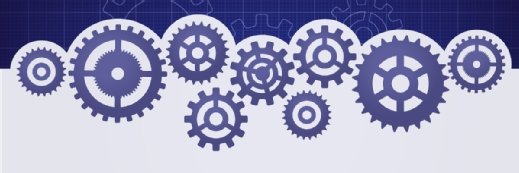
SVLuma - Fotolia
Celonis co-CEO on impact of digital transformation on jobs
Digital transformation will lead to changes in the workforce, as companies adopt new business processes. Employees must be ready to adapt, according to Celonis co-CEO Alex Rinke.
Ready or not, companies in every industry are either undergoing or planning digital transformation. The impact of digital transformation is being felt not only by organizations, but also employees, as they adapt to new business processes and job profiles.
Will the increasing adoption of AI or machine learning send workers to the sidelines or will they open new opportunities for higher-level work as automation takes over routine clerical processes?
In this Q&A, Alex Rinke, co-founder and co-CEO of Celonis, discusses the impact of digital transformation on the future of work and how organizations must understand business processes fully if they are to undergo digital transformation successfully. Based in Munich and New York, Celonis provides process mining software for ERP and other enterprise systems.
How is digital transformation changing today's workplace?
Alex Rinke: We see increasing digitization in the market. So, the workplace has changed a lot, and it's changing quicker than it used to. Workplaces have always evolved, but what we see now is very fast transformation with things like AI or machine learning.
Previous shifts were between different generations: You learned something different than your father, and your father learned something different from your grandfather. But you didn't have to reskill multiple times in your life, which is what's happening now.
How can employees and organizations deal with the impact of digital transformation?
 Alex Rinke
Alex Rinke
Rinke: Employees need more flexibility, but [it] also requires a lot of investment from organizations to make sure that they train people and consider the human impact of the digital transformation. There needs to be engagement between intelligent systems that analyze data and really understand what's happening, and then augment the human element with these capabilities.
Humans have unique skills, like creative thinking, that will be amplified. I don't think that chatbots will replace the need for customer service, because always, at some point, customers want to talk to a human being. But everybody has to look at their jobs and figure out what will this job be in 10 or 20 years.
Will there be job losses for a lot of transactional jobs that have processes that will be automated by digital transformation?
Rinke: There may be losses of transactional jobs, but I think we overestimate this, because most jobs are not completely transactional. Let's take accounting, for example: It typically takes two or three years to become an accounting clerk, but by comparison, it takes only two weeks to learn how to drive a car. However, we are just barely able to automate the process of driving, so this skill that takes a human a few weeks to learn takes a lot of time and money to automate.
It will be very hard to automate the job of an entire accountant. I don't think we'll see a lot of areas of enterprise that become completely automated. Quite the opposite, actually: You will probably need more accountants, because a lot of companies are moving to consumption-based economy, and we will have a lot more smaller transactions. For example, car companies may not sell cars anymore, but provide mobility and sell rides that they charge for individually.
So, the impact of digital transformation may lead to more jobs, not fewer?
Rinke: Yes. As work gets increasingly complex, transactions will massively increase, with more services offered. What happens is that when you have human capabilities being unused, people find ways to use them and turn them into value.
Although some jobs will go away, I wouldn't be too concerned that all the jobs will go away. We will require more flexibility, we have to think about our education system, and humans will increasingly focus more on areas of empathy and creativity, as opposed to just doing repetitive labor.
How is digital transformation affecting companies?
Rinke: There will be massive disruption in the Fortune 2000, and many companies won't survive. We are in for a massively disruptive shake-up in almost every industry -- insurance, banking, manufacturing, consumer products.
For the employees, this just means they switch companies. But, for the companies and the shareholders, there will be big winners and losers. The reason for that is that companies are not able to make this digital transformation successfully.
Why?
Rinke: People say, 'Let's build the bank of the future or the manufacturer of the future,' and the first thing they do is put up a new website or an e-commerce system. But they don't look at what makes Amazon so great, for example. What makes Amazon so great is that they have what we call 'superfluid,' super-efficient business processes. They have an amazing supply chain that enables them to ship any product anywhere in the world, and they have a great customer experience.
Customers expect amazing customer service and very short delivery windows, so manufacturers can't measure these windows anymore in weeks or months, but in days and hours. They need have much more agile and much faster product development cycles.
And this is where digital transformation enables all these processes -- product development, manufacturing, supply chain, procurement -- to be looked at, turned upside down and transformed. Very few companies are doing this kind of digital transformation with any degree of depth.
How can organizations get deeper with digital transformation?
Rinke: Let's say you offer banking services, and you want to offer an amazing customer experience for a digital bank. You want the back end digitized so it's very fast and efficient. You want to have great customer service. You want to have very flexible and quick product development processes. All those things can only be accomplished if you really know how things work in your company, from front-office through to the back-office processes. Only then can you start controlling these processes, improving them and removing friction.
Over the years, companies have introduced tremendous operation friction, which leads to bad customer service experiences and higher productivity costs, so you need to remove this operational friction to become a superfluid enterprise. You can only do this very substantial change if you really understand things -- to know how people work and then start to make step-by-step improvements.







